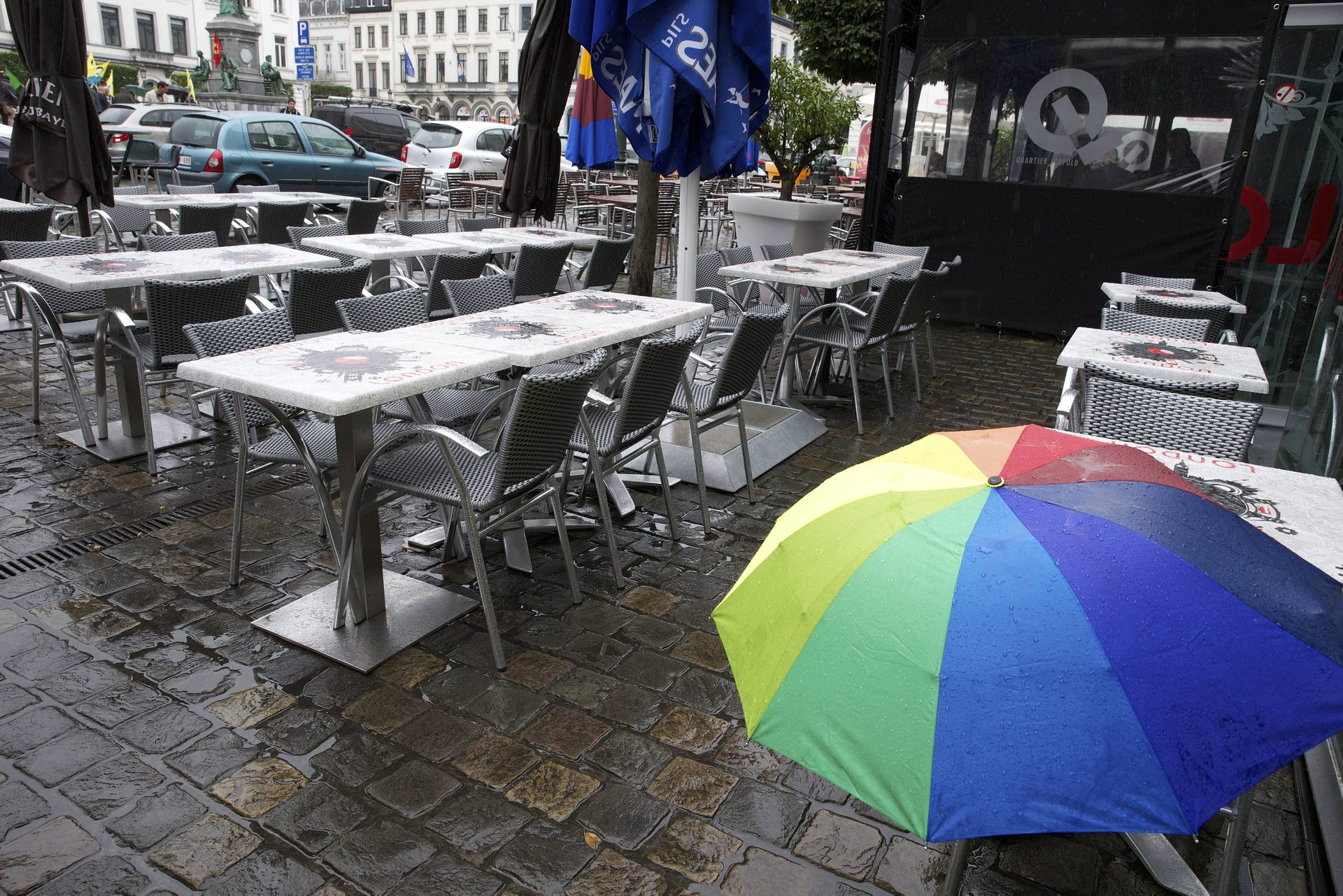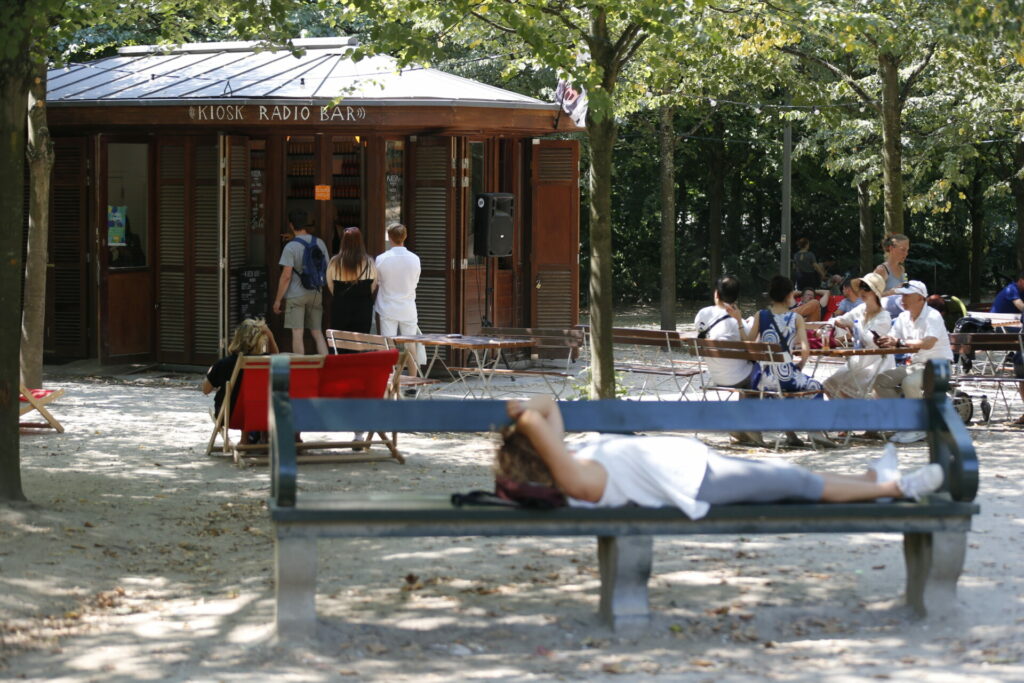While large parts of the world, from southern Europe to Asia and North America, are being plagued by record-breaking heat and extreme weather conditions, Belgium with its cooler temperatures seems to be spared the worst.
In the coming days, temperatures in popular holiday destinations across Europe are expected to stay above 30°C, even edging closer to 40°C in several Greek cities. In several countries, regions have been placed on red alert due to the "extreme danger" posed by these temperatures.
While the south of Europe is trapped under a heat dome, Belgium remains unaffected by the heat wave, despite the fact it experienced record-breaking heat just last month and even experienced its own heat wave not so long ago.
Next week, rain is expected to pour in the country, with temperatures fluctuating around a mere 20°C. Pascal Mailier, a meteorologist at the Royal Meteorological Institute (RMI), explained why this is the case.
"Due to the general location of high and low-pressure areas on a large scale, the northern half of Europe is subject to a sometimes disturbed and unstable western maritime airflow," he told The Brussels Times. Meanwhile, the south of Europe experiences high pressure with very hot air from North Africa.
"This results in an influx of moisture in the form of sometimes cloudy and rainy spells, as well as moderate temperatures. This current acts as a barrier, preventing the very warm, dry air in southern Europe from reaching our regions," he added.
Rise in temperatures still possible
The meteorological mechanism of heat domes, however, is not unique to the Mediterranean and can also occur in Belgium too, as was seen last year, but they generally don't last as long, as the lows forming in northern Europe "chase away" the dome.
This type of jet stream, a river of air at 5 to 10 kilometres altitude, forms a dividing line between different types of air. While southern Europe experiences suffocatingly high temperatures, countries in northern Europe such as Ireland, Scotland and Denmark are experiencing a constant stream of rain.
Belgium currently finds itself in between these two scenarios, with mild temperatures during the day and night and just the occasional shower of rain.

The weather this month has been rainier and colder. Credit: Belga / Nicolas Maeterlinck
Meteorologists expect that this barrier will remain for a while as the jet stream determining this heat has been weakened by climate change, and so there is no expectation of temperatures rising above 30°C anytime soon. "But this does not rule out a rise in temperatures in August," Mailier said. "Summer is far from over and could still provide a surprise."
The extreme heat now occurring in the Mediterranean region is related to changes in the jet stream – a hard air current higher in the atmosphere – which determines our weather. For instance, the strength of the jet stream is determined by the temperature difference between the equator and the North Pole.
Yet, given the current temperatures and the state of the ground since the start of summer, it is unlikely that the country will break more temperature records this year.
Alarming temperature and drought records
Looking at these temperatures, people living in Belgium may think there is little reason to be concerned about global warming. However, Mailier stressed that the temperature and drought records which have already been broken in southern Europe should be alarming enough.
Meanwhile, global warming is occurring much faster than expected. This was echoed by Rozemien De Troch, a climate scientist at the Belgian Climate Centre.
She explained that the extreme heat that is currently seen both over land and sea worldwide is a combined effect of global warming and El Niño – a natural and recurring weather phenomenon in which a band of warm ocean water develops in the Pacific Ocean off the coast of Peru and Ecuador.
"El Niño could still trigger extreme weather phenomena such as heat, drought and extreme rainfall in several locations around the world in the coming months," she told The Brussels Times, adding that this extreme weather may also become more frequent due to global warming.
Earlier this week, the United Nations also reported that the world should prepare for "more intense" heatwaves.
"Results from climate models show further warming, increasing heatwaves and further desiccation for Europe, including in the Mediterranean region. The extent to which this warming continues will depend on the actions taken by policymakers," De Troch stressed.

